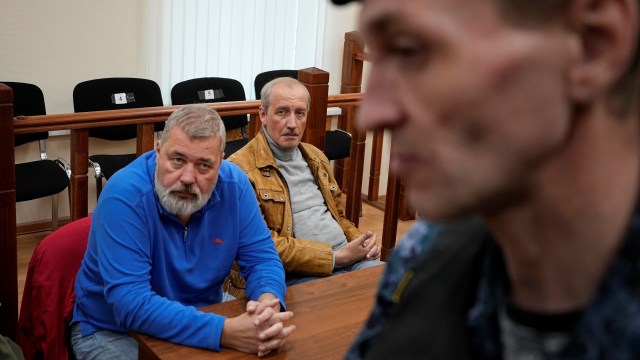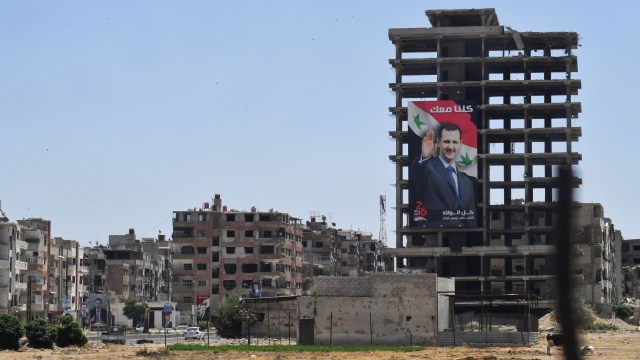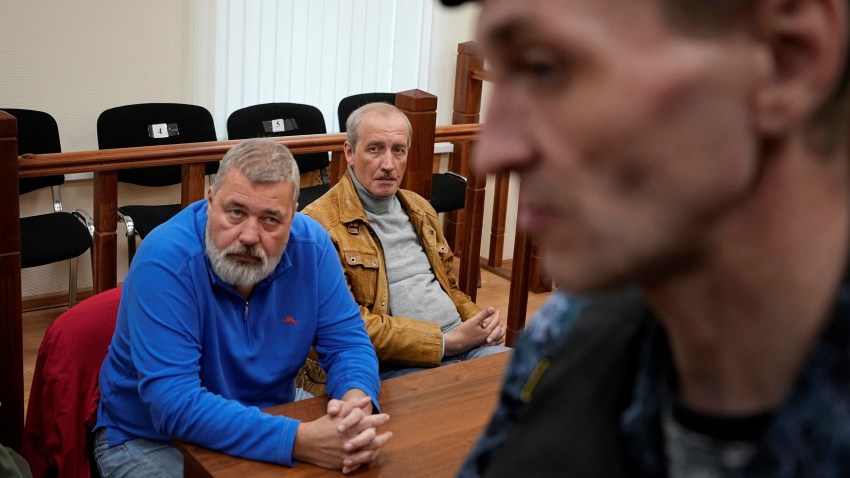Hello, everyone. Today at WPR, we’re covering the challenges facing Russian journalists in exile.
Now, here’s our take on today’s top stories:
Russia: The founder of the Wagner military company, Yevgeny Prigozhin, is presumed dead after a private jet crashed yesterday outside Moscow. There has been no official confirmation of Prigozhin’s death, but he and some of his top lieutenants were listed on the plane’s passenger manifest. (AP)
Our Take: Prigozhin’s presumed death comes exactly two months after the end of a mutiny he led against Russia’s military leadership, leading to an almost immediate widespread assumption yesterday that his death was in fact an assassination.
Speculation about what exactly occurred, however, is just that—speculation. Very little information about the crash is known at this point, and it’s likely that there will be aspects of this story that are never fully confirmed.
Get the Daily Review sent straight to your inbox every weekday.
Instead of speculating, then, we’re focusing today on the potential impact of Prigozhin’s death on these issues:
The war in Ukraine. This issue is twofold. There is, of course, the Wagner Group’s direct involvement in the war, but there is also Prigozhin’s status in Russian society. As some observers have noted, how yesterday’s events are interpreted by the Russian people—and specifically Russian ultranationalists—will affect how Russians view the war.
Wagner’s other operations. Some observers have been quick to assume that with Prigozhin, and other Wagner commanders, gone, the group will fall apart. It is just as likely, however, that the company restructures and continues its operations.
And even if the Wagner Group does come to an end, the Wagner model won’t. As Christopher Faulkner, Raphael Parens and Marcel Plichta wrote last month: “Moscow will continue to find value in deploying semi-private military companies to high-risk areas far from its borders.”
The Putin regime. As WPR columnist Alexander Clarkson wrote following Prigozhin’s presumed death:
BRICS expansion: The five-nation group of emerging economies is set to become an eleven-nation group beginning in January, as BRICS’ current members announced invitations for six countries to join at this year’s summit. (New York Times)
- Current members: Brazil, Russia, India, China and South Africa.
- Invited countries: Argentina, Egypt, Ethiopia, Iran, the UAE and Saudi Arabia.
More context from WPR: James Bosworth on why expanded membership may leave the group worse-off.


Exiled Russian Journalists Aren’t Safe Anywhere
After Russia invaded Ukraine, journalists who refused to follow the Kremlin’s asphyxiatingly narrow rules not only had to flee the country, if they chose to continue doing their work, but they also had to endure a treacherous path.
As columnist Frida Ghitis writes, their challenges include transnational persecution by Russian intelligence operatives and the personal and professional difficulties of working in exile in a world in which so many view Russians with suspicion.

Yesterday, we asked: Do you think BRICS should expand?
The results? It appears BRICS leaders went against WPR readers’ advice.
65 percent of respondents said “No,” BRICS should not expand, and just 35 percent said “Yes.”
Thanks to everyone who answered the poll.

In the southern Syrian province of Sweida, protestors raided the local offices of the ruling Baath party Wednesday. Anti-government rallies broke out Tuesday night, sparked by President Bashar Assad’s decision last week to double public sector wages and pensions, which sent inflation surging.
Twelve years after the Syrian civil war began in 2011, the country is facing a severe economic crisis, with seemingly no hope for recovery or reconstruction. Elizabeth Tsurkov wrote in March about why there appears to be no respite on the horizon for Syrian civilians:
Assad Has Survived Syria’s Civil War. Syria Might Not
March 21, 2023 | Twelve years after Syria’s civil war began, the Assad regime may be scoring political wins, but society is suffering more than ever. Read more.

That’s all for today’s Daily Review.
Have a great day,
Jakob Cansler
More From WPR
- Jonathan Fenton-Harvey on the UAE’s foreign policy.
- Alexander Clarkson on Brexit and Trumpism.
- Simon Allison on Zimbabwe’s elections.
- Richard Gowan on the coming month’s high-level summits.

